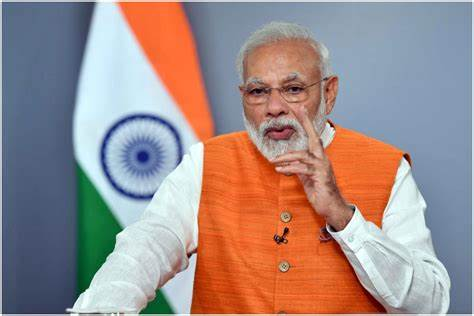Prime Minister Narendra Modi addressed the G20 group energy ministers in Bambolim, Goa. He received an “encouraging” response from other countries regarding India’s proposal to build a transnational grid for energy security.

India aims to foster mutually beneficial cooperation with neighboring countries in the region. The focus is on achieving encouraging results for enhancing energy security.
Modi envisions India as a global leader in renewable energy. His ambitious goal is to achieve 100% clean energy by 2030.
A transnational grid would enable India to import and export renewable energy, ensuring a reliable and affordable energy supply. It will also contribute to reducing greenhouse gas emissions.
The proposal has garnered positive reactions globally. The United States and the European Union have shown support and willingness to discuss the idea.
While its success remains uncertain, the proposal holds great potential for global energy security and climate change mitigation.
The Modi government has accomplished significant developments in India:
- GDP Growth: Under Modi’s leadership, India’s GDP grew at an average rate of 7.23% in the first four years, outperforming the previous government’s 6.39%.
- Infrastructure: Major investments were made in roads, railways, airports, and ports, bolstering economic growth and connectivity across the country.
- Digital Economy: India emerged as a global leader in the digital economy, promoting digital literacy and entrepreneurship through various initiatives.
- Social Welfare: Modi initiated projects like Pradhan Mantri Jan Dhan Yojana (PMJDY) and Pradhan Mantri Kaushal Vikas Yojana (PMKVY) to improve the lives of the marginalized.
